Timothy Alamba and Joel Gomiyar
Before now, processing and obtaining land titles was a major challenge to many aspiring and old land owners. In this interview, Barr. Peter Nyam Gai, the Honorable Commissioner for the Ministry of Lands, Survey and Town Planning shades light on this and other issues relating to the ministry.
Enjoy!
Sir, can you describe the journey of the past 2 years in office?
Honestly, the journey so far has been challenging in view of the fact that the ministry was almost at a comatose level when I came in. We discovered a lot of infrastructural decay, the staff morale was low and we had bad working tools.
So how have you been able to surmount the problems you met?
Infrastructural Development
Honestly, we have done a lot. One, is in the area of infrastructure, we have been able to renovate and improve the offices that we met on ground.
Secondly, we have been able to furnish most of the offices through the provision of cabinets, desks, chairs, and general furniture. For example, the ministry had no water system. We have reconnected the ministry to Plateau State Water Board and we have also been able to reactivate key offices. We had to refurbish, renovate and remodel some structures to provide befitting accommodation for the Commissioner, the Permanent Secretary, and the Director of Administration. For the first time, we were able to provide a meeting Board Room for the ministry.
Operational Vehicles:
Another aspect that we have been able to achieve a lot is the area of procurement of operational vehicles and motorcycles to ease our field operations. We had to buy delivery machines that can go from house to house to deliver our demand notices without the customers having to come to the ministry to collect it themselves. We also bought Sienna buses to augment the logistics of the ministry.
Ease of Acquiring Land Titles:
We have been able to ensure that we fast track our processes which before now used to take close to about between 5 to 10 years. One of the things we did was to abridge the processing line by reducing the workflows from 46 to 26. That means a file does not have to pass through 46 stages before it is cleared. We are still working towards further reducing the processes.
For now, Right of Occupancy (R of O), can be processed and gotten in three months while for the Certificate of Occupancy, (C of O) take just five months to be processed. From August 14th, 2023 when I resumed office to now, we have been able to process 4,536 Certificates of Occupancy. This is a sharp contrast against the last administration which only processed 3,000 in eight years. This means that by the grace of God before our tenure ends, we should be able to hit between 8,000 and 10,000.
Revenue Generation:
You know this ministry also is saddled with the responsibility of generating revenue. When I came in August 2023, we met revenue of 170 million. So between August and December 2023, we were able to push it to 450 million. In 2024, we were given a target of 719 million. We were able to achieve that target and we exceeded the target with about 57 million.
This year on revenue, we are almost hitting 800 million. Which then means that before the end of this year, at least for the first time in the history of the ministry, all things being equal, we should be able to hit over one billion revenue generated. We achieved all these without introducing any new policies but rather, blocked leakages.
Staff Welfare:
Yes, like I said, we met the morale of staff very low, immediately when I came in, I gave the staff assurance that with their cooperation, we want to see if we can move the ministry to the status of a special ministry where the staff of the ministry can begin to earn special allowances. So we started by embarking on the training and retraining of our staff workforce through retreats and peer review with Abuja Geographical Information System and that of Kaduna respectively.
In the Ministry of Lands, Survey and Town Planning we were able to put up a sick bay which is manned by a trained nurse. What we normally do is every month we buy drugs that you can obtain off the counter for treatment of malaria, typhoid and other diseases.
Moreover, we have been able to help our staff to key into the governor’s Metro Bus transportation reform by buying the boarding cards for them and sometimes load the cards for them.
Land Issues Arbitration and Mitigation:
You know land is always embedded with a lot of crisis litigations which are usually expensive and take longer time to resolve. So what we have done is to develop a robust mediation mechanism where every Saturday we spend between 9 to 10 hours to resolve land issues only. As at 20th September 2025, we had about 86 cases and have settled 32 out of the 86 cases. The mediation process is faster, cheaper, and at the end of the day, it ends on a happy note.
Eliminate Cases of Missing Files:
We have also tried to deal with the issues of missing files. One thing that is akin to the ministry is the issue of missing files. We were able to digitize about 90% of our files so that even if your file cannot be seen, you can recall your file from our memo or our database which can be printed and then you continue with the processing of your application.
What it means to digitize a file is first, we index the file, scan it and do a quality assurance of the file before submitting it to our database. By so doing, we will have captured virtually all the transactions to the file. So with that, even if somebody steals your file, you can always recall it since we have a backup in our database.
Modern Boardroom for Meetings:
There was no board room when we came in so we had to build a board room which can seat 130 people and furnished it with modern facilities. We use this board room in order to generate revenue by throwing it open to members of the public for use at a very minimal fee.
How we get money for Projects and Running costs:
This ministry is not on subvention. We are on retention such that whatever we generate, we keep 30% of it. So, we must work hard to be able to generate more money. Once we generate money, you know, this ministry must run on light 24 hours. It’s either we are running on JEDC light or on diesel, which is also very expensive especially since we are using computers. We also have field workers and about five Area Offices across the entire state. But despite that, we were able to conserve 72 million out of our IGR.
We were able to do a well – planned layout at Agingi, Bassa LGA where presently, the layouts are on sale for 2.8 million per plot including the cost of titles. There are 18 plots left but virtually all the plots have been taken. We have been able to use our IGR to do virtually all the things that we have done without asking the government to give us resources.
PLAGIS Platform:
Another aspect that I think we have done tremendously well is to improve our GIS platform, the Geo Information System that we inherited. I can assure you, in the past eight years of the last administration, virtually nothing was done about it which led to the disappearance of some of the services embedded in the system.
For example, the website disappeared because they were not servicing it and the alternative power supply also went down. So, we are just managing to ensure that at least we remain stable before the system is upgraded. Presently, we have 50 licenses, but the users are more than 50, which then means that some people must have to wait. So that once a license is free, another one will kick. So, we have decided to add another six licenses.
What we are also doing is phasing out all the old computers that we inherited and replacing them with some with modern ones. Like I said, our target of course is to be able to develop our GIS platform to the stage that people can stay in the comfort of their houses, upload their pre-titling documents, it hits our database, and we’ll process it and call them to collect their certificates.
Collaboration with other MDAs:
We work hand in hand with the Jos Metropolitan Development Board, JMDB since the Ministry of Lands, Survey and Town Planning is divided into about three sections. There is the land aspect, the survey aspect, the town planning. So normally if you pick your title here, you go to JMDB to give you building approval. So, what we have been able to do is to work hand in hand with JMDB.
Secondly, as far as land acquisition is concerned, it is domicile in the ministry. We have been able to fast track the acquisition of land for other agencies of government, both at the state and federal level. For example, we have been able to acquire land for the expansion of the College of Education, Gindiri and also acquired land for the construction of two international markets one at Mangu and the other at Maraban Jama’a.
We’ve also been able to acquire 90 hectares of land at Bisichi and we have given it out to the Federal Ministry of Urban Development for the Renew Hope housing project of Mr. President.
Land Titles for Donated lands
Our parents were yearning for development and gave out lands to government for free. Now, we have a situation where the Gen Zs have come to say they must be paid compensations which I think that is not too good as far as development is concerned.
I have a situation where people have started even building within premises of hospitals. So, we have charted it so that at the end of the day, we will not have a situation where we begin to issue titles on government lands that people have donated to government before.
Greater Jos Master Plan
You know the Greater Jos Master Plan, I think it expired this year 2025. His Excellency was proactive enough to have put a committee to look into the next plan which I think the committee has almost concluded its assignment and have expanded the area coverage of the Jos Greater Master Plan to accommodate more communities. I think this one is going as far as Riyom. You know once you have a properly planned area, you have a serene environment and then facilities will be provided in such areas.
Land Use Charge:
By next year, we are rolling out the policy on Land Use Charge which then means that all properties, whether registered or unregistered are supposed to pay government a certain amount of money to be determined based on fair value rates. We are working hand in hand with the Plateau State Internal Revenue Service and local governments to see how we can commence this process by next year.
Another policy that we are deliberate about and working with the federal government is the issue of systematic land title registration and documentation. By this, it means that rather than people coming to the ministry to say we want to pick titles, we want to go and visit the people in their houses and encourage them to pick titles. We will pick the coordinates of your house. We may not put beacons and then record all your data.
Processing of Land Titles:
Now, what does it take? Who are the key stakeholders as far as processing of land title is concerned? One, the traditional rulers, two, the local government, three, Ministry of Lands. So, what we’re doing is we are moving as a team.
This means that if you want to build a house in a place, you buy the land and you have your sales agreement, the next thing is to do a change of ownership. The local government is already there to give you a change of ownership. Once you have your change of ownership, the next thing is to have a survey plan for that house.
The surveyors are ready there to pick the coordinates of your house and develop a survey plan for you. We will give you form to fill at just a small fee. We will then go to the field, collect all your data, come back to the office, process your title and call you to collect your certificate of occupancy.
We are relating closely with the Federal Ministry of Urban Development and we did a test case of states that are willing and ready to key into the project and a selection was done in Lagos and I am glad to inform you that Plateau State was part of the few states that were picked for this systematic land title registration and documentation.
Future Plans:
Honestly talking about the plan, apart from the systematic land title registration, very soon we will embark on recertification. Recertification means we want to recall all those old certificates of occupancy. Those ones that came on a paper form so that we can give them our smart certificate with security features embedded in it.
Land Titles for IDPs
Another plan that we also want to embark upon is the issue of titling lands of people who have been displaced as a result of the crisis that has bedeviled us. Those who have acquired people’s lands by force, certainly government is looking at ways to end this crisis and to be able to resettle people in their ancestral homes.
In the interim, what can we do to safeguard the ownership of this land, to protect the root of title of these lands in the event that the crisis ends and some of us are no more? What can our children use to show proof of ownership? So, we have started a project in conjunction with the Norwegian Refugee so that we will begin to issue titles to people who have been displaced so that at least they can have something to hold in the event that the crisis ends. We have also engaged about five local governments. We first started in Bassa, we went to Riyom, Bokkos, Mangu and we ended in Barkin Ladi. That is not the end as there are other local governments facing similar challenges.
Challenges:
There are a lot of challenges we have encountered which include;
Attitudinal challenge: Sometimes you come to a place and you find staff that are really steadfast or don’t like to change and that is one aspect that has really slowed us down. But I am glad to inform you that some have changed their attitudes, but some are still adamant and certainly government is going to take a decisive step.
Outdated Working Tools: We have the issue of outdated working tools. You know, society is evolving. The computer that you have been using for 14, 15 years, you don’t expect it to serve the same purpose again. So, some of them are even outdated like the Dell computers we are using, there’s no support service for Dell again. So, we just use our ingenuity to see how we can just calibrate and replace the parts so that we can keep the system moving.
Power Supply: We also have problems of alternative power supply bearing in mind that to run a system on generators is expensive. Even if you are linked to the national grid, it is also expensive. So a substantial amount of money goes into this area.
Man Power: In the area of staffing, I want to say that we do not really have enough staff to run the system. If not for the huge bills that Plateau State is paying in terms of salaries, I certainly know something would have been done. But we have made our position known to government that we need more hands so that we will be able to handle the volumes that are beginning to come virtually every day.
Plateau State is almost becoming a safe haven for investors because it is the most peaceful state in the whole Northern Nigeria. Investors are rushing to Plateau State to either invest or to own property. So, what we intend to do, his Excellency has keyed into a major policy of the World Bank to see if we are able to meet up with some terms of reference given to us, which we have passed the first stage. Once we pass the other stages, we should get some support so that we can upgrade our GIS platform.
Like earlier said, you do not need to come to the ministry to register your titles. We can have a portal embedded in the digitized platform where you can upload your applications and wait for your certificate of occupancy. So the challenges are there and enormous, but we are not relenting. We will face them as they come, and we thank God that we have been succeeding.
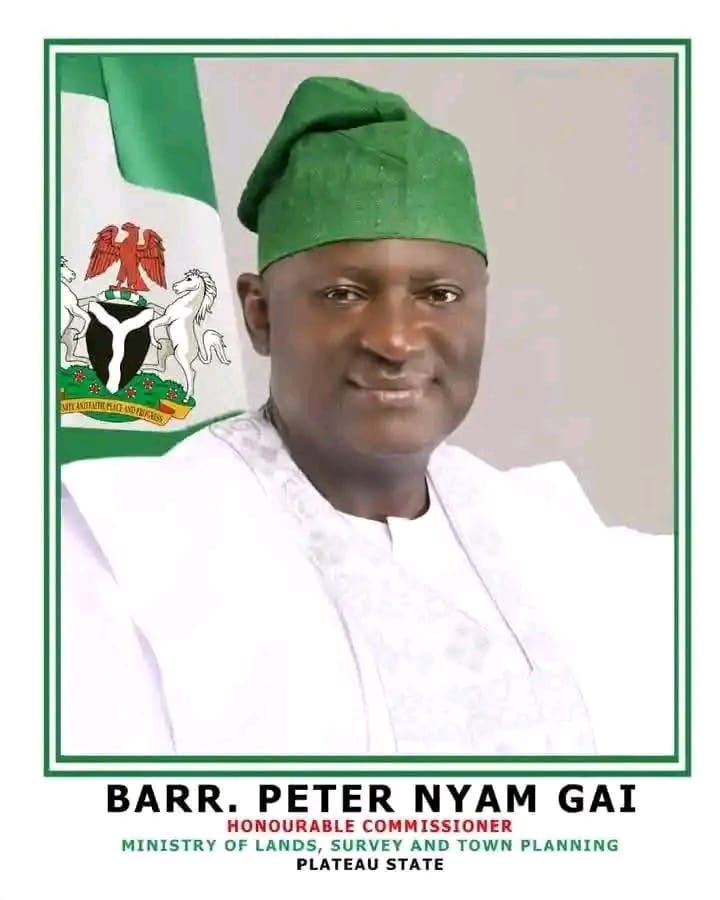
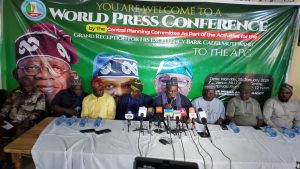
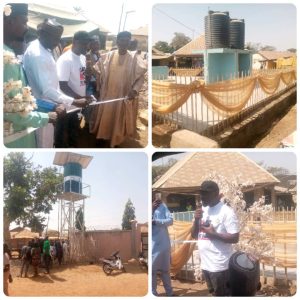
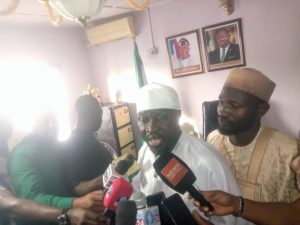
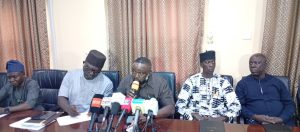
More Stories
Jos to hosts Mega Political Reception To Welcome Gov. Mutfwang To APC.
Plateau Legislators Visit UK Parliament, Meet Plateau State Indigenes
Plateau Legislators, Top Management Staff Attend Legislative Leadership Training in UK